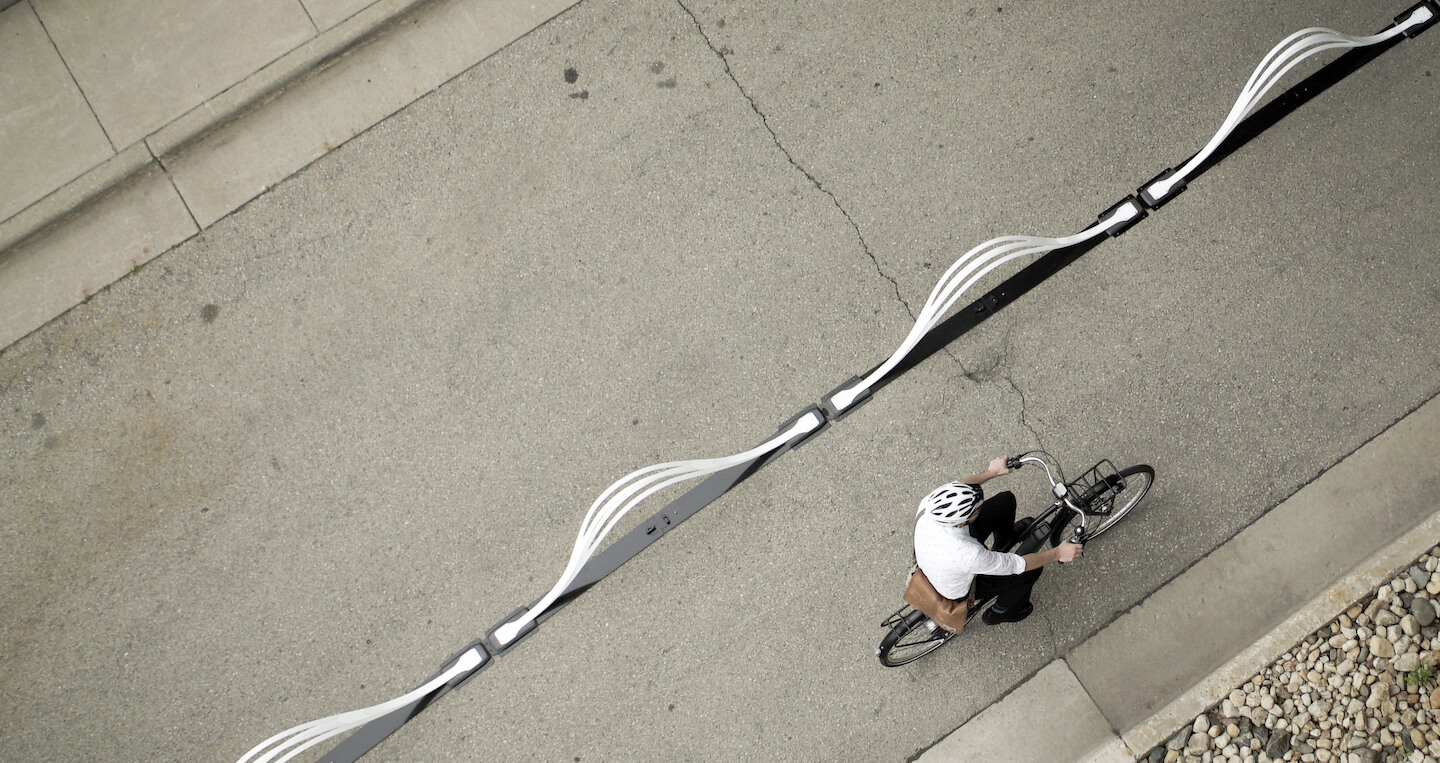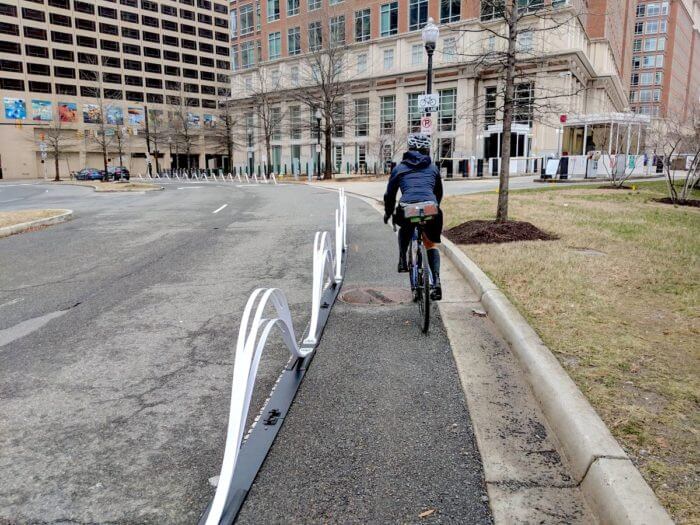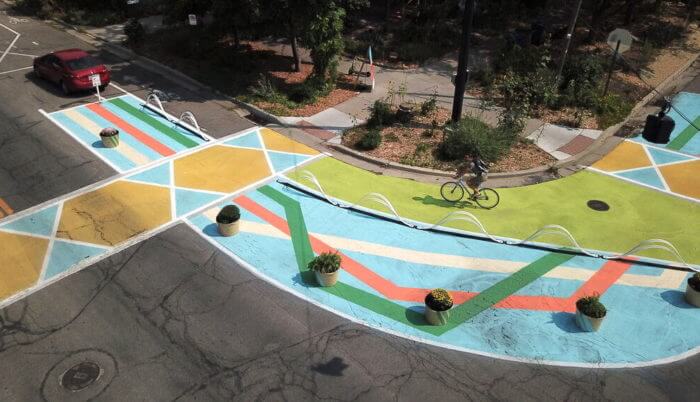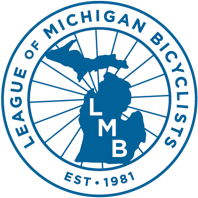 July 28, 2021
July 28, 2021
We’re excited to announce the launch of Bike Wave, a new program which will offer Michigan cities the opportunity to try out protected bike lanes and curb extensions. This project was one of only 244 grantees selected from across all 50 states for the 2021 AARP Community Challenge grant. Thanks to the support of AARP, cities can participate in pilot programs this fall for quick action to improve bikeability in their communities.
“We are incredibly proud to collaborate with these organizations as they work to make immediate improvements in their communities, encourage promising ideas and jumpstart long-term change, especially for those age 50 and over,” said Paula D. Cunningham, AARP Michigan State Director. “Our goal at AARP Michigan is to support the efforts of our communities to be great places for people of all backgrounds, ages and abilities.”
For the average bicyclist, using a bike lane can sometimes prove intimidating. According to the Federal Highway Administration, more than half of potential bike riders are often not comfortable using painted bike lanes due to traffic. With adequate infrastructure, more individuals will choose to travel by bike for work, school, shopping, or play.
Bike lane separators are an effective way to maintain safety on roads — one study estimated that the presence of protected bike lanes in a city may result in a 44% reduction of deaths and a 50% reduction of serious injuries.

Building separated bike lanes can be difficult for Michigan communities, as best practices for design of protected lanes and intersections are not widely known.
Bike Wave seeks to overcome these challenges by providing cities with resources and equipment to set up bike lane separators for pilot projects. Participating cities are selected based on ability to engage their community in the initiative. Each city can apply to receive wave-shaped delineators, bike counters and curb extenders for a pop-up demonstration period. LMB hopes that successful trial periods will encourage cities to install permanent structures.
With safer bike lanes, more people will feel comfortable bicycling for commuting and recreation. A 2021 study of the Toronto area showed bicyclists are more than twice as likely to commute “almost every day” after the implementation of on-street separated cycle tracks.
Increased bicycling in a city’s business district is also likely to increase sales and employment. As one example, in 2012, the installation of bike lanes down Central Avenue in Minneapolis increased retail employment by 12.64% and local food sales by 52.44%.

“Pilot programs like this allow for local leaders to see the benefits of protected bike lanes and understand why this type of infrastructure is necessary to build communities, while also benefiting the environment and economy,” Sean Hammond, Policy Director of the Michigan Environmental Council, said.
Cities interested in this initiative may apply at LMB.org/getbikewave no later than Sept. 10 to be considered for the 2021 program. Applications for 2022 will start Sept. 11 lasting through at least March 15, 2022.
Categorised in: Uncategorized

